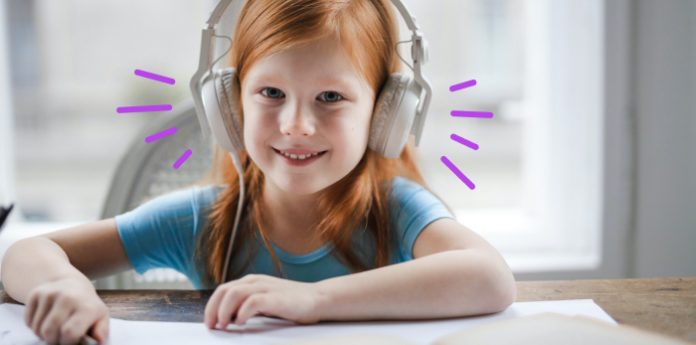While all students learn best when they receive a variety of teaching methods, some students benefit most from auditory learning. These students learn best by hearing and listening.
Math & ELA | PreK To Grade 5
Kids see fun.
You see real learning outcomes.
Watch your kids fall in love with math & reading through our scientifically designed curriculum.
Parents, try for free Teachers, use for free
Auditory learning is one of three learning styles in the Fleming VAK model (visual, auditory, kinesthetic model).
They may seem to ignore what’s happening if they listen intently to things like someone talking, music, or TV. Auditory learning occurs when a speaker or someone explains something and is right in front of you.
Auditory learners can grasp a concept by listening. They tend to be better at remembering material through repetition or lectures. These students will remember what someone said during class even if they didn’t take notes because they could retain the information through auditory means.
How Does It Help Kids Learn?

There are many reasons why auditory learning can be beneficial for kids. It helps with social development by encouraging children to interact with others and share ideas. It also helps them build their vocabulary and communication skills. These are essential skills they need in school and throughout their lives!
Additionally, the scope of auditory learning provides critical thinking by allowing students to ask questions and discuss topics with their peers or teachers. This helps them develop problem-solving skills, which can come in handy when facing real-world situations later on down the road!
Auditory Learning Strategies for Teachers
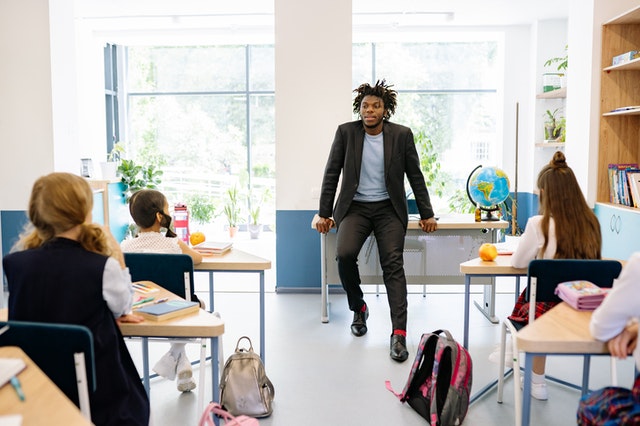
Auditory learners can store information long-term while listening to it but need repetition to remember—the more senses involved in the learning process, the greater the probability of learning.
Related Reading: Best Teaching Strategies for 2022
Here are some auditory learning strategies to help teachers in the classroom:
- Make sure that your students can hear you clearly. Ensure that the noise level in the classroom is low, or if you are outside, don’t talk too loudly. If you have a large group of students and you are having trouble with the noise level, consider passing out earphones so that the students can hear more easily.
- Use music and songs. One of the best ways to teach auditory learners is music and song. You can use songs to teach any subject, from math to history and language arts. The lyrics can be written by you or by students; sometimes, kids enjoy writing their lyrics because they feel they can express themselves better this way. You can play soft music as white noise to increase focus, as well.
- Record lectures, lessons, and notes for your auditory learners to listen to later. This is especially useful if you have a student who has missed class for an extended period and needs extra help catching up with their peers. You can also record lessons for those auditory learners who want to review the material in greater depth at home or at night when doing homework assignments.
- Have your students watch how-to videos that teach things like how to take care of a pet, play a sport, and so on.
- Audiobooks are very popular with kids of all ages these days. It’s easy to see why; audiobooks take the effort out of reading, leaving room for more enjoyment!
- If your students have homework assignments that involve reading a novel, suggest that families make time each night for a family read-aloud before bedtime. This is especially beneficial if your students’ parents are auditory learners too. Ask them to keep a log of the minutes they spend reading together as a family each week and then award prizes for those who record the most minutes.
- Since they learn by hearing and talking, auditory learners will benefit from hearing themselves speak out loud. Have them read aloud during independent reading time, explain their answers during class discussions, and answer questions about their reading verbally instead of writing down their thoughts.
- In addition to music, creating sound effects for stories can be a great way to engage auditory learners! It’s also a fun way for kids to practice their reading and imaginative thinking skills as they create the soundtrack.
Some Common Auditory Learner Characteristics
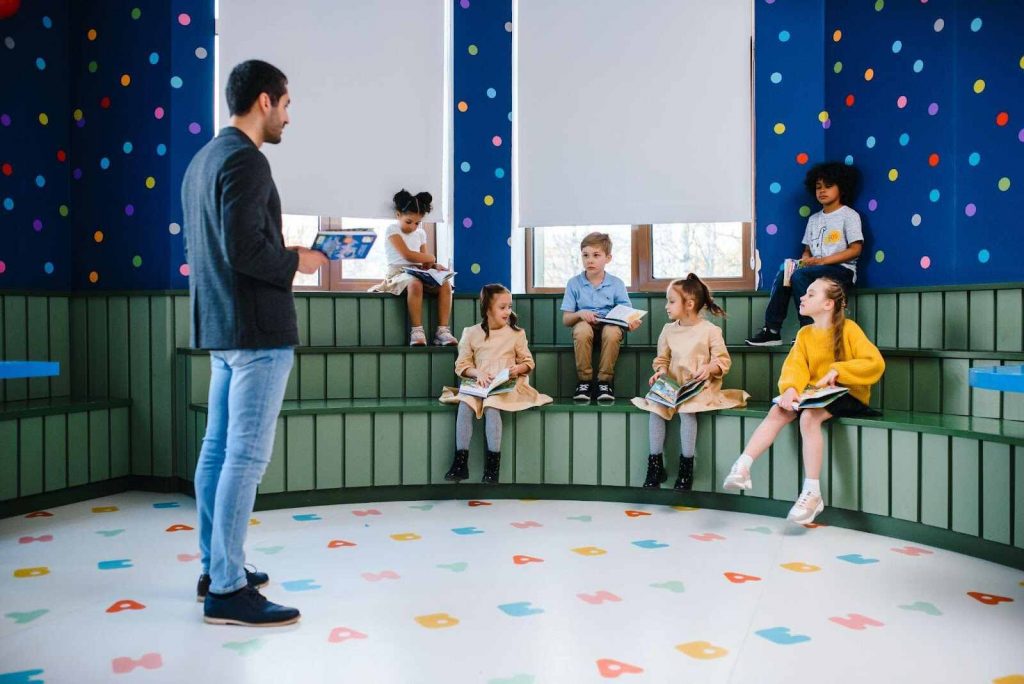
- They enjoy discussions, debates, and lectures.
- They find it easy to remember names and faces.
- They are often good spellers, able to spell words based on their sound.
- They learn best when reading out loud or listening to music.
- They enjoy conversations with others.
- They enjoy music or playing musical instruments.
- They sing along when listening to the radio.
- They get distracted easily by noise.
- They might need more time on tests than visual learners.
- They often enjoy acting out some important events or dramatizing stories from textbooks.
Related Reading: Benefits of Culturally Responsive Teaching
Practical Auditory Learning Activities to Enhance Students’ Learning
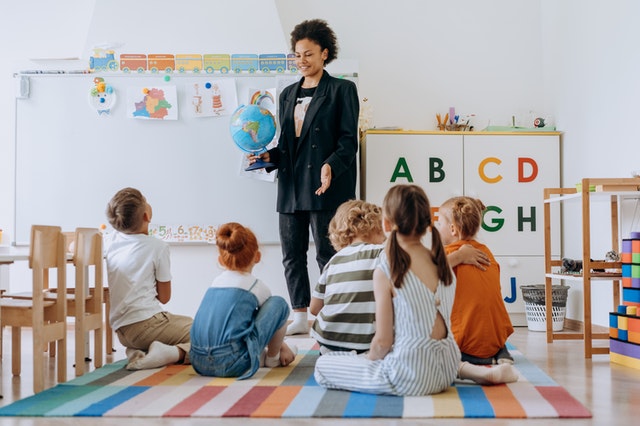
Auditory learning for kids is all about listening. You want your students to listen carefully, understand what they hear, and respond appropriately. When children attend, they develop their ability to pay attention, follow directions, and make new connections in their minds.
Auditory learning activities are an excellent way for kids to process and use information in their lives. Listening attentively is also essential for building relationships with others and helping them succeed at school and work later on down the line.
Students can enhance auditory learning through activities that involve spoken word, music, or sound effects, such as:
- Lecturing aloud while studying;
- Reading aloud while studying;
- Discussing with others;
- Dictating notes into a tape recorder;
- Speaking and writing in complete sentences when possible;
- Singing along to songs or talking out loud to oneself;
- Instead of reading your notes during study sessions, try reciting them out loud with a friend or classmate;
- Talking through problems or ideas before beginning projects.
Strengths of Auditory Learners

Auditory learners tend to do well in classes with many discussions, such as business classes and English classes. They also like jobs that involve talking with others or teaching. Education and social work are promising careers for auditory learners because they explain things to others.
Auditory learners also tend to prefer one-on-one conversations with their teachers to grasp information better. They are good with words and typically have an excellent memory of spoken language.
Some Common Strengths of Auditory Learners:
- They are skilled at remembering information they’ve heard, such as speeches and lectures.
- They’re good at following lectures and listening to verbal instructions and directions.
- They may prefer group work or discussions over solo work.
- They often excel at verbal and written communication.
- They do well with lectures and presentations.
- They tend to explain things and can become skilled public speakers.
- They often take on leadership positions because they can listen to the needs of their team members and respond appropriately.
- They tend to be good at spelling and vocabulary.
- Auditory learners also tend to do well on tests such as oral exams.
- They can often remember conversations verbatim, even if they hear it only once.
- Auditory learners tend to do well in the language arts and music.
The Importance of Auditory Learning Style
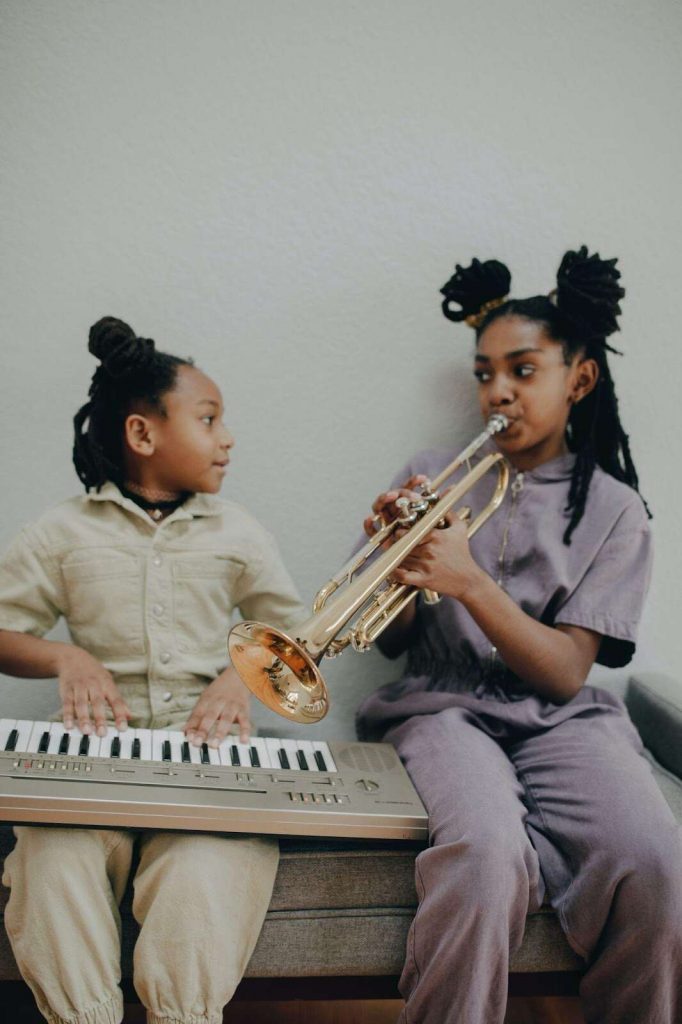
Auditory learners tend to be talkers, enjoy music, and play games that involve words or sounds. They also like to have discussions and read out loud. Unlike visual learners, who prefer a quiet environment for testing, auditory learners need background noise to concentrate on their work.
Auditory learners will benefit from oral instruction and listening to different sounds during the learning process. The auditory learner tends to listen rather than read and remembers things after hearing them.
Thus, auditory learning can be considered one of the most critical learning styles. Many people tend to learn through their senses, so they will find it challenging to learn through traditional means. This is why auditory learners benefit from different learning methods, particularly in ways that involve listening.
Related Reading: What Makes Summative Assessment a Powerful Tool for Teachers
Today, many studies have shown how auditory learning can help students achieve better results in their academic studies. It is believed and proved that auditory learners benefit from a more interactive approach to education.
Bottom Line
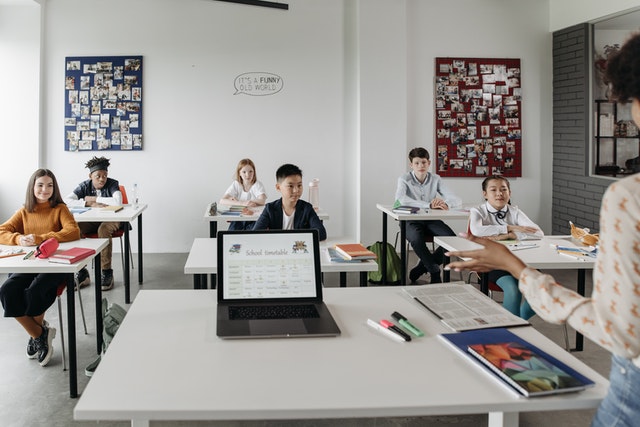
The auditory learning style is one of the most common learning styles. Compared to the other styles, auditory learners tend to be more practical and use their skills in real-world situations. Listening, understanding, and implementing information is vital for auditory learners. The auditory learner may have problems organizing several pieces of information simultaneously; however, these thinkers will excel in life if appropriately guided.
However, not everyone can be taught the same way. Students have different learning styles, and teachers must cater to that. As such, SplashLearn provides a multisensory way of learning for students. The site offers games and worksheets for students to practice with. This learning community can help students break down the material into bite-sized pieces that they can easily understand and apply in the real world.
What are auditory learners good at?
Auditory learners are naturally good at public speaking, remembering information, giving directions, oral exams, etc.
Why is auditory learning meaningful?
Auditory learning is essential as it helps enhance children’s critical thinking and listening abilities.
Is auditory learning effective?
One of the most significant advantages of auditory learners is that they can retain essential information more effectively than students who fall under the category of other learning styles.

















